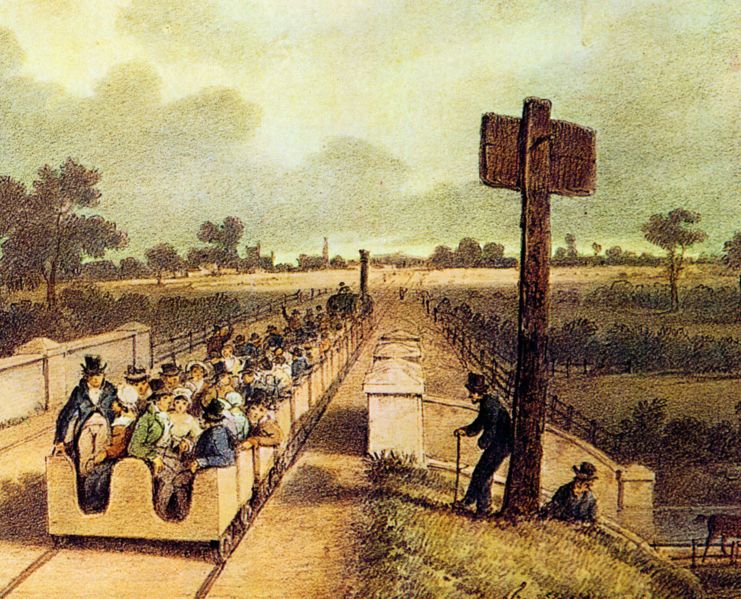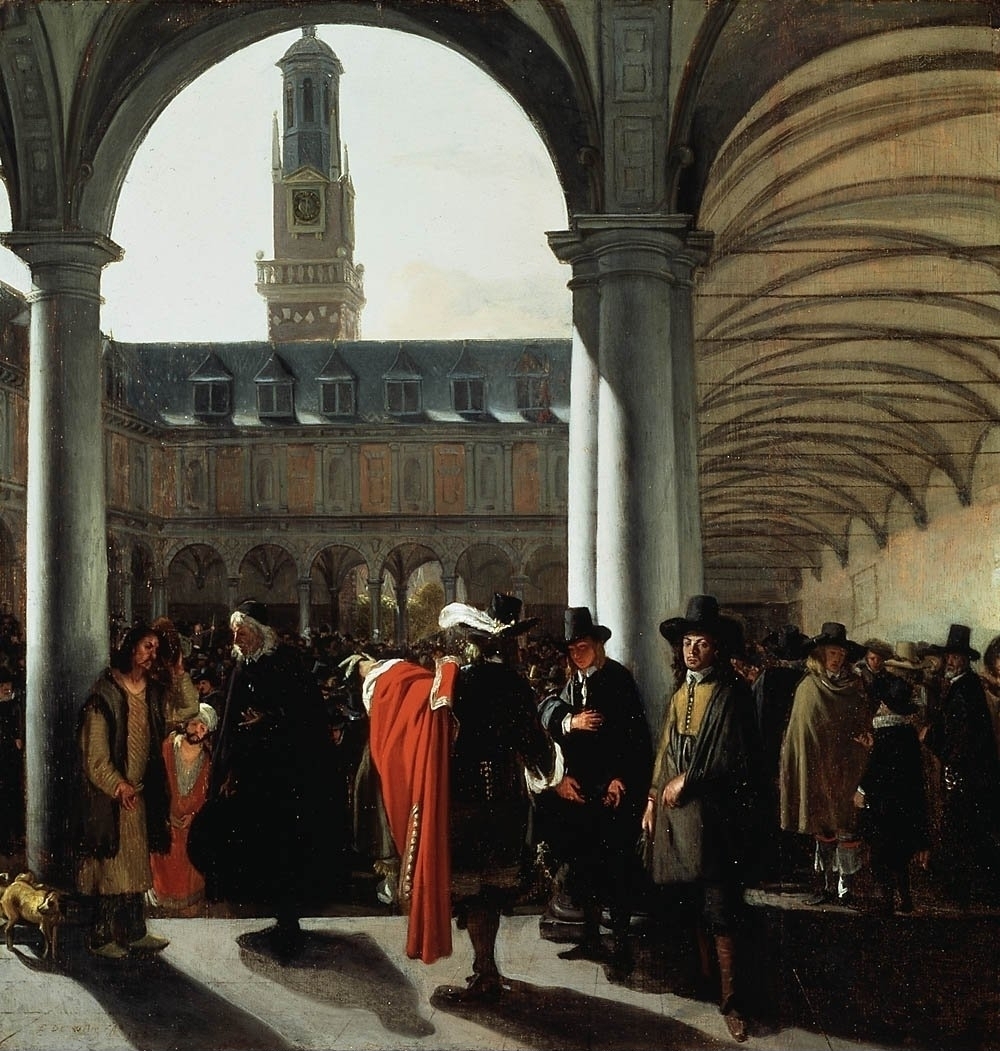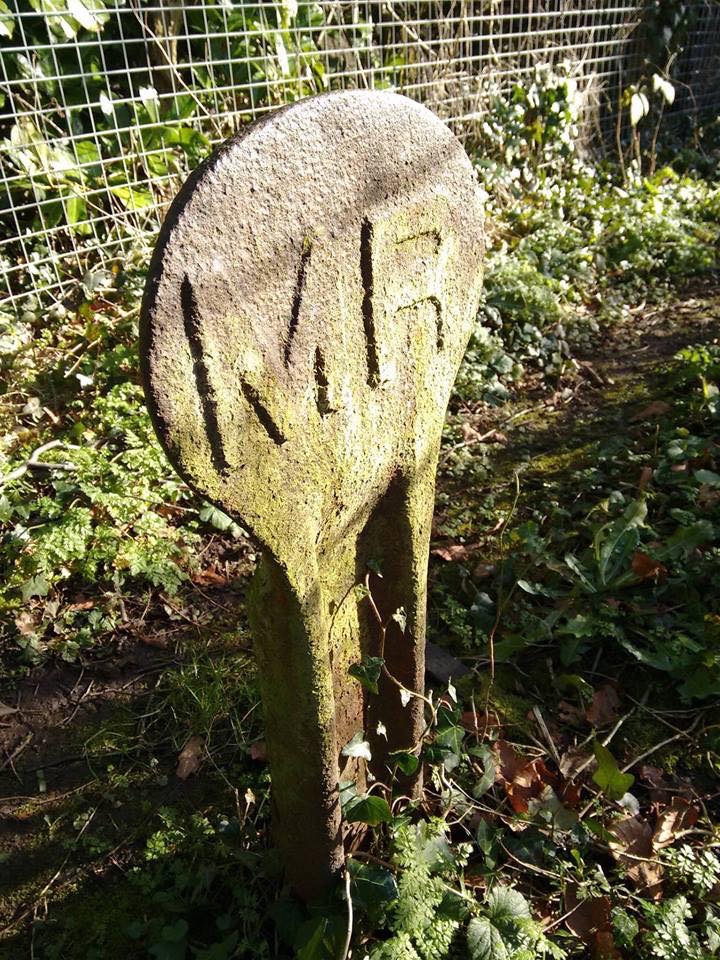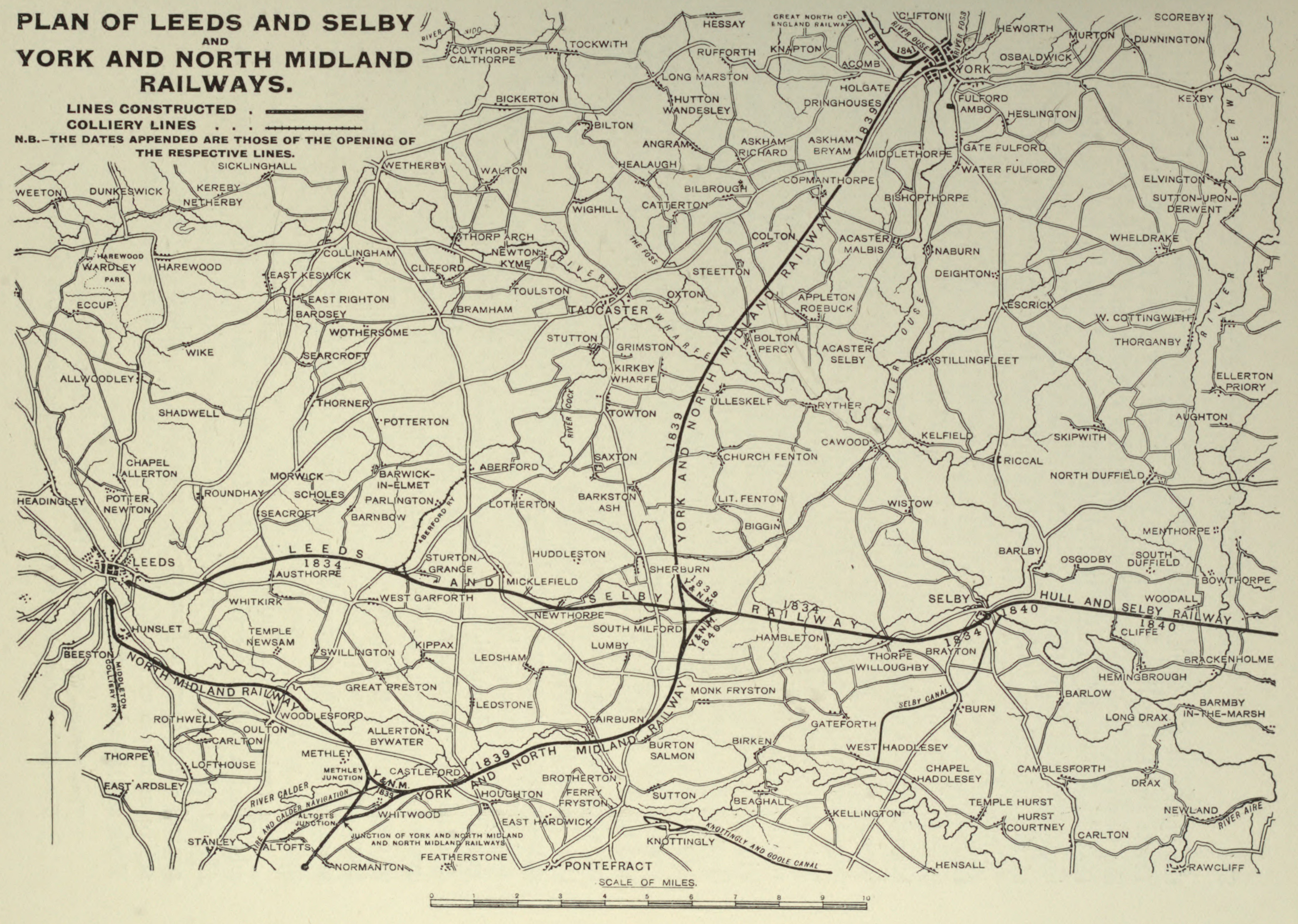|
Railway Mania
Railway Mania was an instance of a stock market bubble in the United Kingdom of Great Britain and Ireland in the 1840s. It followed a common pattern: as the price of railway shares increased, speculators invested more money, which further increased the price of railway shares, until the share price collapsed. The mania reached its zenith in 1846, when 263 Acts of Parliament for setting up new railway companies were passed, with the proposed routes totalling . About a third of the railways authorised were never built—the companies either collapsed due to poor financial planning, were bought out by larger competitors before they could build their line, or turned out to be fraudulent enterprises to channel investors' money into other businesses. Causes The world's first recognizably modern inter-city railway, the Liverpool and Manchester Railway (the L&M), opened its railway in 1830 and proved to be successful for transporting both passengers and freight. In the late 1830s an ... [...More Info...] [...Related Items...] OR: [Wikipedia] [Google] [Baidu] |
Stock Market Bubble
A stock market bubble is a type of economic bubble taking place in stock markets when market participants drive stock prices above their value in relation to some system of stock valuation. Behavioral finance theory attributes stock market bubbles to cognitive biases that lead to groupthink and herd behavior. Bubbles occur not only in real-world markets, with their inherent uncertainty and noise, but also in highly predictable experimental markets. In the laboratory, uncertainty is eliminated and calculating the expected returns should be a simple mathematical exercise, because participants are endowed with assets that are defined to have a finite lifespan and a known probability distribution of dividends . Other theoretical explanations of stock market bubbles have suggested that they are rational, intrinsic, and contagious. History Historically, early stock market bubbles and crashes have their roots in financial activities of the 17th-century Dutch Republic, the birthpl ... [...More Info...] [...Related Items...] OR: [Wikipedia] [Google] [Baidu] |
Laissez-faire
''Laissez-faire'' ( ; from french: laissez faire , ) is an economic system in which transactions between private groups of people are free from any form of economic interventionism (such as subsidies) deriving from special interest groups. As a system of thought, ''laissez-faire'' rests on the following axioms: "the individual is the basic unit in society, i.e. the standard of measurement in social calculus; the individual has a natural right to freedom; and the physical order of nature is a harmonious and self-regulating system." Another basic principle of ''laissez-faire'' holds that markets should naturally be competitive, a rule that the early advocates of ''laissez-faire'' always emphasized. With the aims of maximizing freedom by allowing markets to self-regulate, early advocates of ''laissez-faire'' proposed a ''impôt unique'', a tax on land rent (similar to Georgism) to replace all taxes that they saw as damaging welfare by penalizing production. Proponents of ' ... [...More Info...] [...Related Items...] OR: [Wikipedia] [Google] [Baidu] |
North Eastern Railway (UK)
The North Eastern Railway (NER) was an English railway company. It was incorporated in 1854 by the combination of several existing railway companies. Later, it was amalgamated with other railways to form the London and North Eastern Railway at the Grouping in 1923. Its main line survives to the present day as part of the East Coast Main Line between London and Edinburgh. Unlike many other pre-Grouping companies the NER had a relatively compact territory, in which it had a near monopoly. That district extended through Yorkshire, County Durham and Northumberland, with outposts in Westmorland and Cumberland. The only company penetrating its territory was the Hull & Barnsley, which it absorbed shortly before the main grouping. The NER's main line formed the middle link on the Anglo-Scottish "East Coast Main Line" between London and Edinburgh, joining the Great Northern Railway near Doncaster and the North British Railway at Berwick-upon-Tweed. Although primarily a Nor ... [...More Info...] [...Related Items...] OR: [Wikipedia] [Google] [Baidu] |
Sheffield, Ashton-under-Lyne And Manchester Railway
The Sheffield, Ashton-under-Lyne and Manchester Railway was an early British railway company which opened in stages between 1841 and 1845 between Sheffield and Manchester via Ashton-under-Lyne. The Peak District formed a formidable barrier, and the line's engineer constructed Woodhead Tunnel, over long. The company amalgamated with the Sheffield and Lincolnshire Junction Railway and Great Grimsby and Sheffield Junction Railway companies, together forming the Manchester, Sheffield and Lincolnshire Railway in 1847.George Dow, ''Great Central: volume I: The Progenitors, 1813–1863'', Locomotive Publishing Co Ltd, London, 1959, , page 84 In the twentieth century the line carried an exceptionally heavy freight traffic, and it was electrified in 1954; at that time a new Woodhead Tunnel was driven. In 1974 the major part of the route was closed to passenger trains, leaving passenger operation continuing only on the Manchester– Hadfield section, and in 1981 the line east of Hadfiel ... [...More Info...] [...Related Items...] OR: [Wikipedia] [Google] [Baidu] |
Great Northern Railway (Great Britain)
The Great Northern Railway (GNR) was a British railway company incorporated in 1846 with the object of building a line from London to York. It quickly saw that seizing control of territory was key to development, and it acquired, or took leases of, many local railways, whether actually built or not. In so doing, it overextended itself financially. Nevertheless, it succeeded in reaching into the coalfields of Nottinghamshire, Derbyshire and Yorkshire, as well as establishing dominance in Lincolnshire and north London. Bringing coal south to London was dominant, but general agricultural business, and short- and long-distance passenger traffic, were important activities too. Its fast passenger express trains captured the public imagination, and its Chief Mechanical Engineer Nigel Gresley became a celebrity. Anglo-Scottish travel on the East Coast Main Line became commercially important; the GNR controlled the line from London to Doncaster and allied itself with the North Easte ... [...More Info...] [...Related Items...] OR: [Wikipedia] [Google] [Baidu] |
Rail Transport In The United Kingdom
The United Kingdom consists of Great Britain and Northern Ireland, and previously consisted of Great Britain and the whole of Ireland. Rail transport systems developed independently on the two island masses of Great Britain and Ireland, and most of the railway construction in the Republic of Ireland was undertaken before the creation of the Irish Free State in 1922. Thus, the logical division to discuss the history and present-day state of railways in these areas is by geographical division, rather than the nationalist division of nation states. The United Kingdom is a member of the International Union of Railways (UIC). The UIC Country Code for United Kingdom is 70. * Rail transport in Great Britain discusses rail transport on Great Britain, comprising England, Scotland and Wales. Here, the vast majority of the railway system standardised on the . ** Rail transport in Scotland discusses rail transport in Scotland. **Rail transport in England discusses rail transport ... [...More Info...] [...Related Items...] OR: [Wikipedia] [Google] [Baidu] |
Midland Railway
The Midland Railway (MR) was a railway company in the United Kingdom from 1844. The Midland was one of the largest railway companies in Britain in the early 20th century, and the largest employer in Derby, where it had its headquarters. It amalgamated with several other railways to create the London, Midland and Scottish Railway at grouping in 1922. The Midland had a large network of lines emanating from Derby, stretching to London St Pancras, Manchester, Carlisle, Birmingham, and the South West. It expanded as much through acquisitions as by building its own lines. It also operated ships from Heysham in Lancashire to Douglas and Belfast. A large amount of the Midland's infrastructure remains in use and visible, such as the Midland main line and the Settle–Carlisle line, and some of its railway hotels still bear the name '' Midland Hotel''. History Origins The Midland Railway originated from 1832 in Leicestershire / Nottinghamshire, with the purpose of serving the nee ... [...More Info...] [...Related Items...] OR: [Wikipedia] [Google] [Baidu] |
Great Western Railway
The Great Western Railway (GWR) was a British railway company that linked London London is the capital and List of urban areas in the United Kingdom, largest city of England and the United Kingdom, with a population of just under 9 million. It stands on the River Thames in south-east England at the head of a estuary dow ... with the southwest, west and West Midlands (region), West Midlands of England and most of Wales. It was founded in 1833, received its enabling Act of Parliament on 31 August 1835 and ran its first trains in 1838 with the initial route completed between London and Bristol in 1841. It was engineered by Isambard Kingdom Brunel, who chose a broad gauge of —later slightly widened to —but, from 1854, a series of Consolidation (business), amalgamations saw it also operate Standard gauge, standard-gauge trains; the last broad-gauge services were operated in 1892. The GWR was the only company to keep its identity through the Railways Act 1921, which ama ... [...More Info...] [...Related Items...] OR: [Wikipedia] [Google] [Baidu] |
George Hudson - Project Gutenberg EText 17293
George may refer to: People * George (given name) * George (surname) * George (singer), American-Canadian singer George Nozuka, known by the mononym George * George Washington, First President of the United States * George W. Bush, 43rd President of the United States * George H. W. Bush, 41st President of the United States * George V, King of Great Britain, Ireland, the British Dominions and Emperor of India from 1910-1936 * George VI, King of Great Britain, Ireland, the British Dominions and Emperor of India from 1936-1952 * Prince George of Wales * George Papagheorghe also known as Jorge / GEØRGE * George, stage name of Giorgio Moroder * George Harrison, an English musician and singer-songwriter Places South Africa * George, Western Cape ** George Airport United States * George, Iowa * George, Missouri * George, Washington * George County, Mississippi * George Air Force Base, a former U.S. Air Force base located in California Characters * George (Peppa Pig), a 2 ... [...More Info...] [...Related Items...] OR: [Wikipedia] [Google] [Baidu] |
Capital (economics)
In economics, capital goods or capital are "those durable produced goods that are in turn used as productive inputs for further production" of goods and services. At the macroeconomic level, "the nation's capital stock includes buildings, equipment, software, and inventories during a given year." A typical example is the machinery used in factories. Capital can be increased by the use of the factors of production, which however excludes certain durable goods like homes and personal automobiles that are not used in the production of saleable goods and services. Adam Smith defined capital as "that part of man's stock which he expects to afford him revenue". In economic models, capital is an input in the production function. The total physical capital at any given moment in time is referred to as the capital stock (not to be confused with the capital stock of a business entity). Capital goods, real capital, or capital assets are already-produced, durable goods or any n ... [...More Info...] [...Related Items...] OR: [Wikipedia] [Google] [Baidu] |
Dividend
A dividend is a distribution of profits by a corporation to its shareholders. When a corporation earns a profit or surplus, it is able to pay a portion of the profit as a dividend to shareholders. Any amount not distributed is taken to be re-invested in the business (called retained earnings). The current year profit as well as the retained earnings of previous years are available for distribution; a corporation is usually prohibited from paying a dividend out of its capital. Distribution to shareholders may be in cash (usually a deposit into a bank account) or, if the corporation has a dividend reinvestment plan, the amount can be paid by the issue of further shares or by share repurchase. In some cases, the distribution may be of assets. The dividend received by a shareholder is income of the shareholder and may be subject to income tax (see dividend tax). The tax treatment of this income varies considerably between jurisdictions. The corporation does not receive a tax deduc ... [...More Info...] [...Related Items...] OR: [Wikipedia] [Google] [Baidu] |
George Hudson
George Hudson (probably 10 March 1800 – 14 December 1871) was an English railway financier and politician who, because he controlled a significant part of the railway network in the 1840s, became known as "The Railway King"—a title conferred on him by Sydney Smith in 1844. Hudson played a significant role in linking London to Edinburgh by rail, carrying out the first major merging of railway companies (the Midland Railway) and developing his home city of York into a major railway junction. He also represented Sunderland in the House of Commons. Hudson's success was built on dubious financial practices and he frequently paid shareholders out of capital rather than money the company had earned. Eventually in 1849, a series of enquiries, launched by the railways he was chairman of, exposed his methods, although many leading the enquiries had benefited from and approved of Hudson's methods when it suited them. Hudson fell a long way, becoming bankrupt, and after losing his Sun ... [...More Info...] [...Related Items...] OR: [Wikipedia] [Google] [Baidu] |








